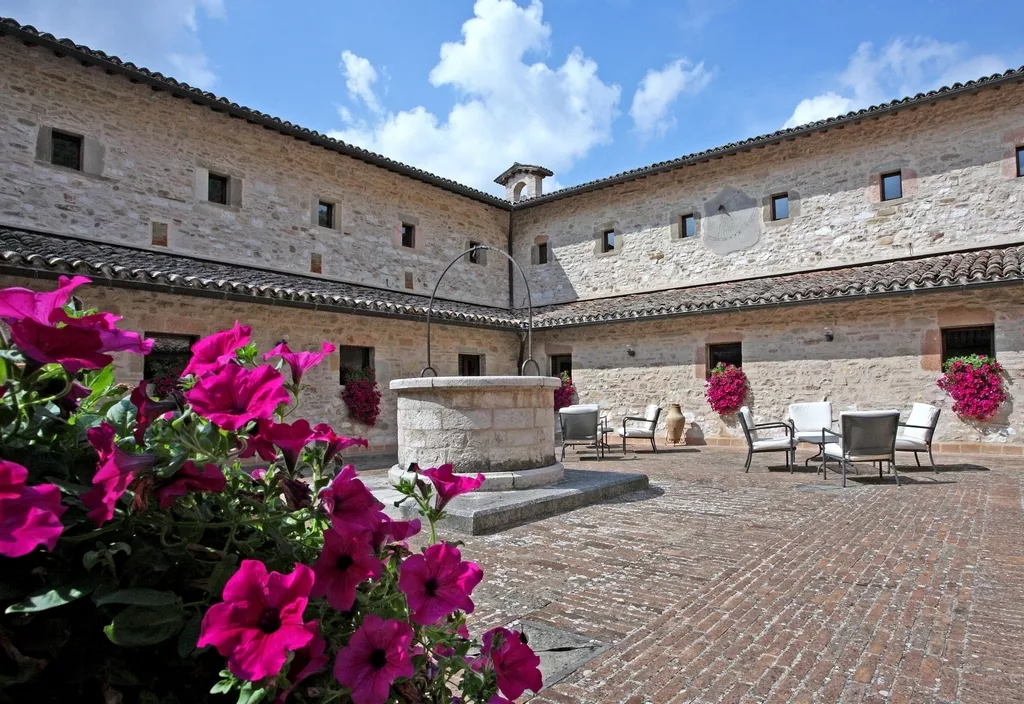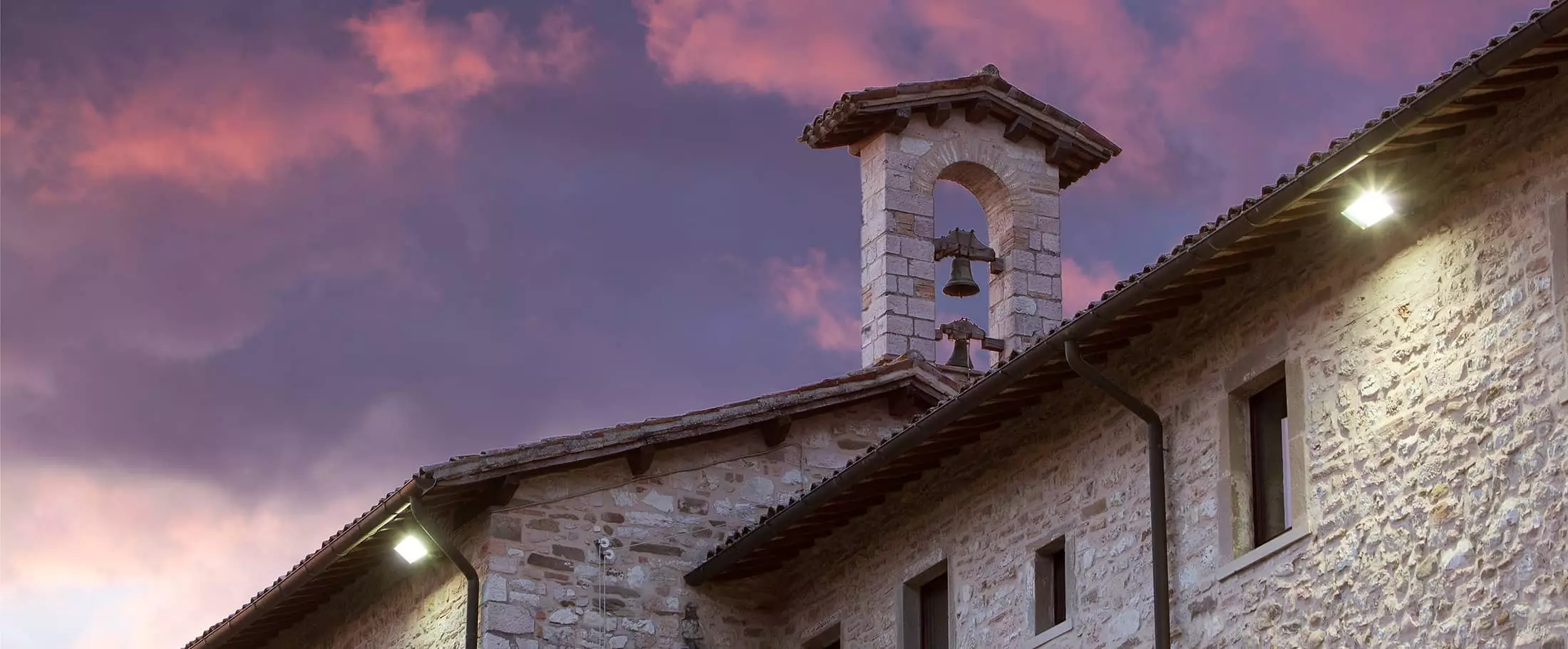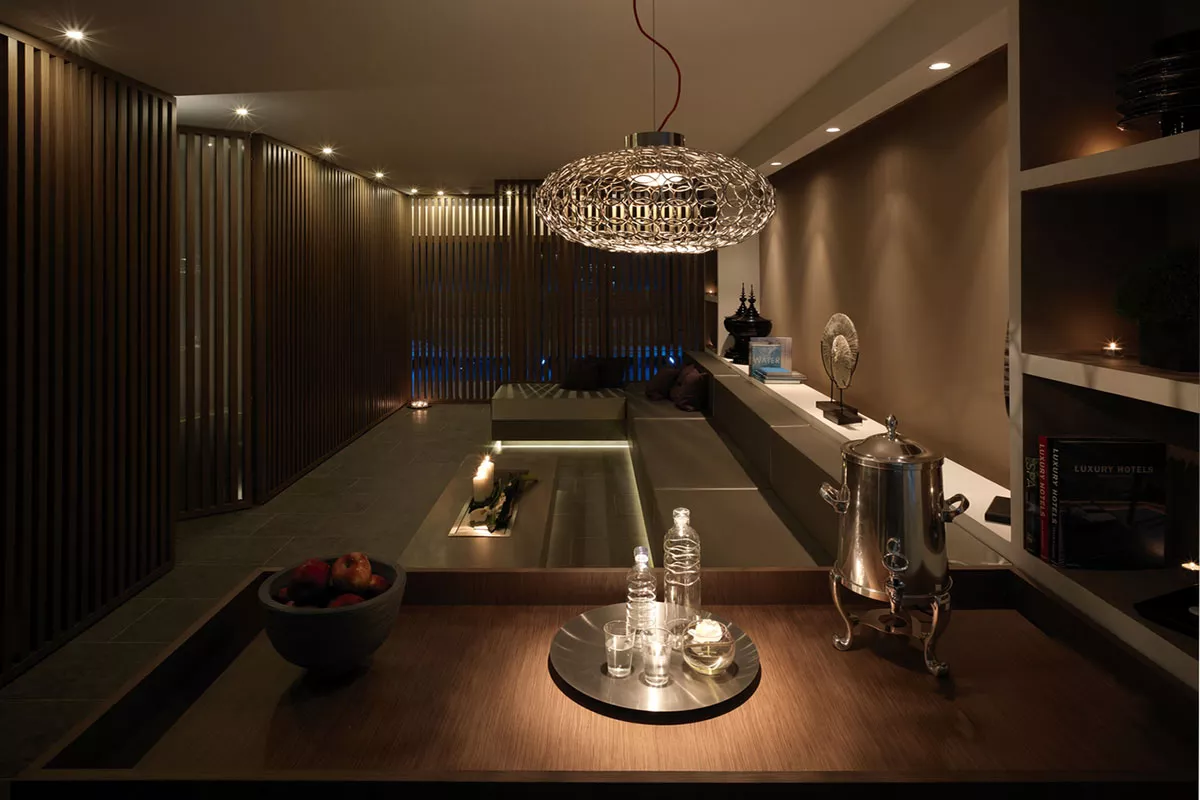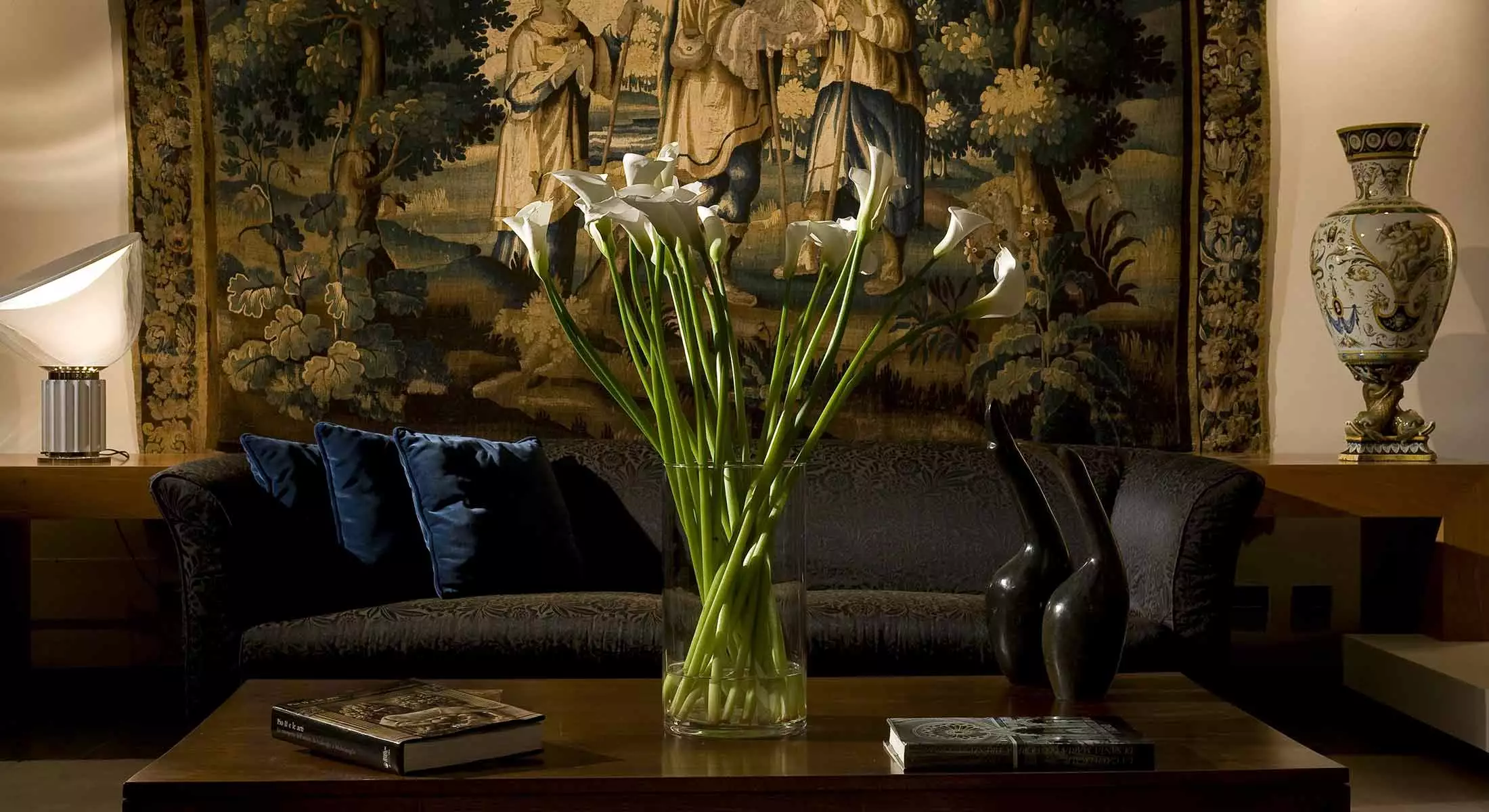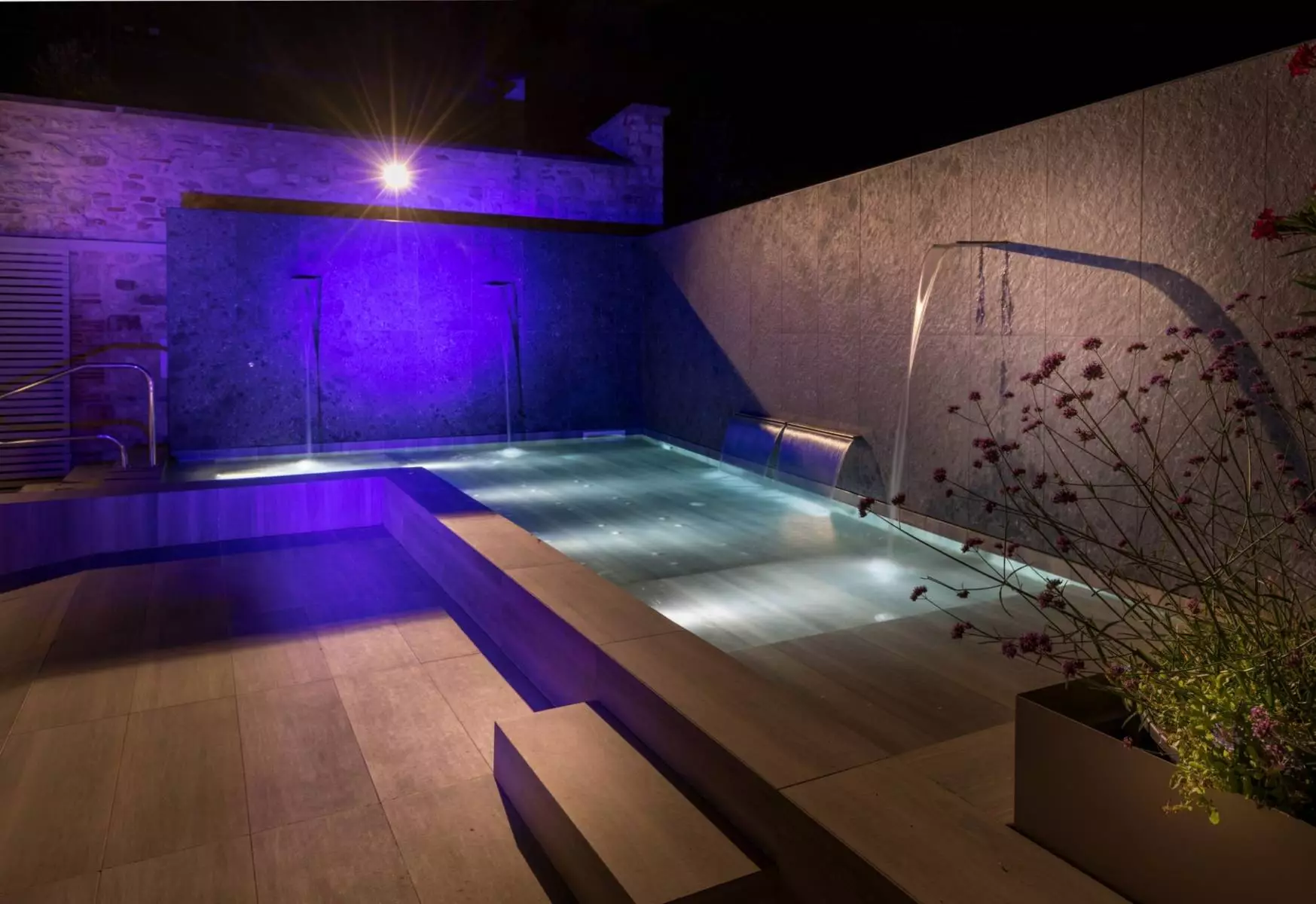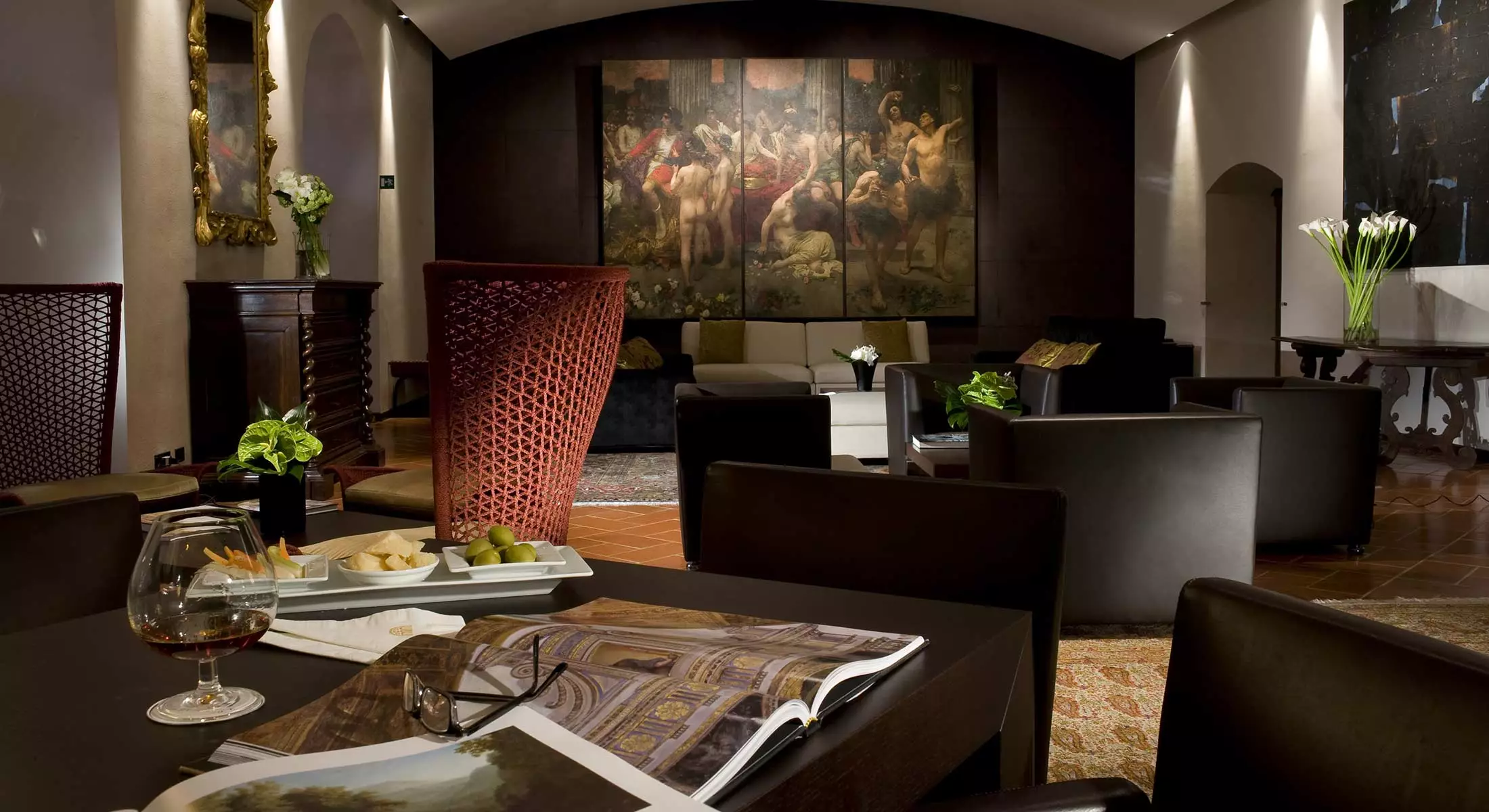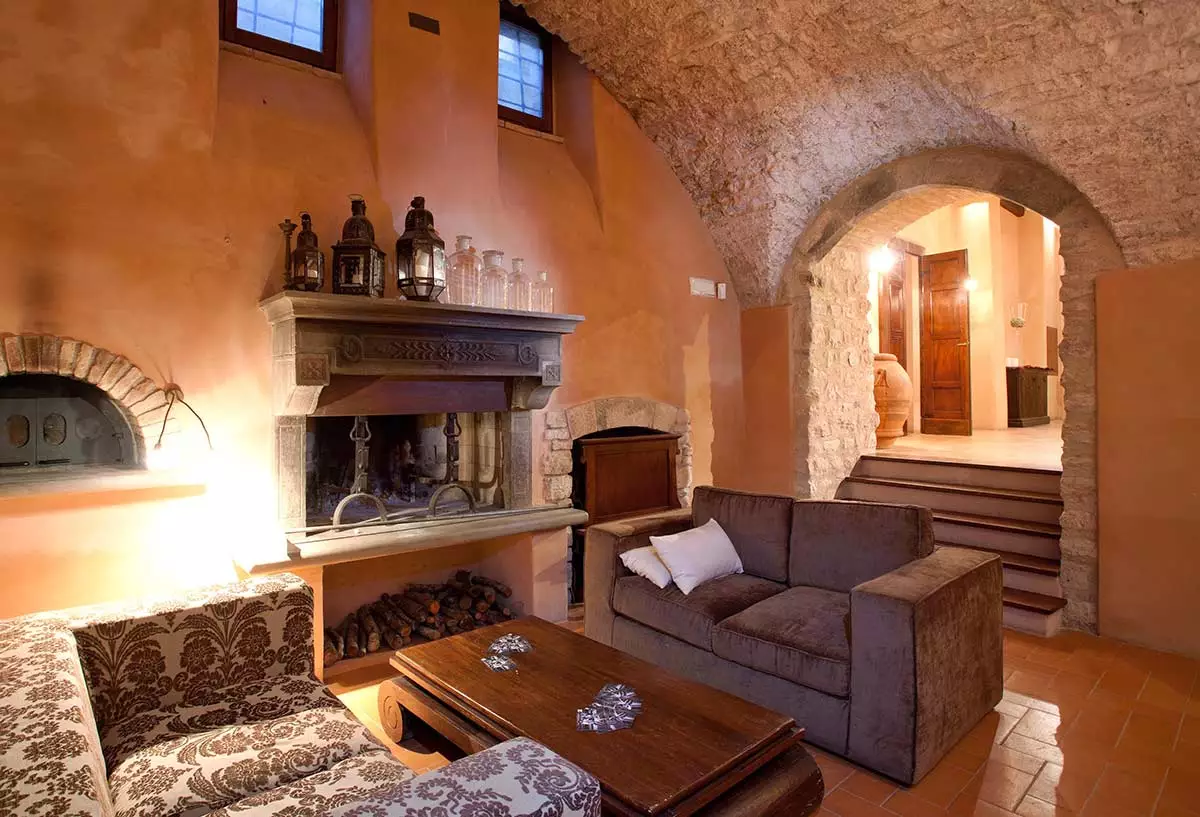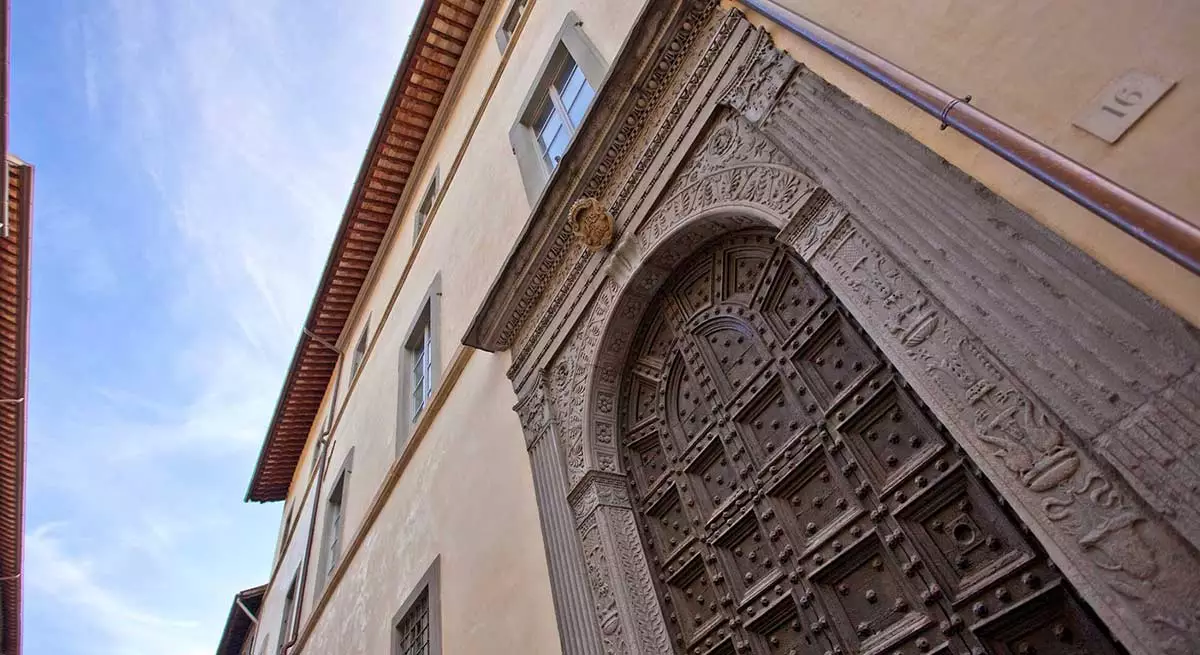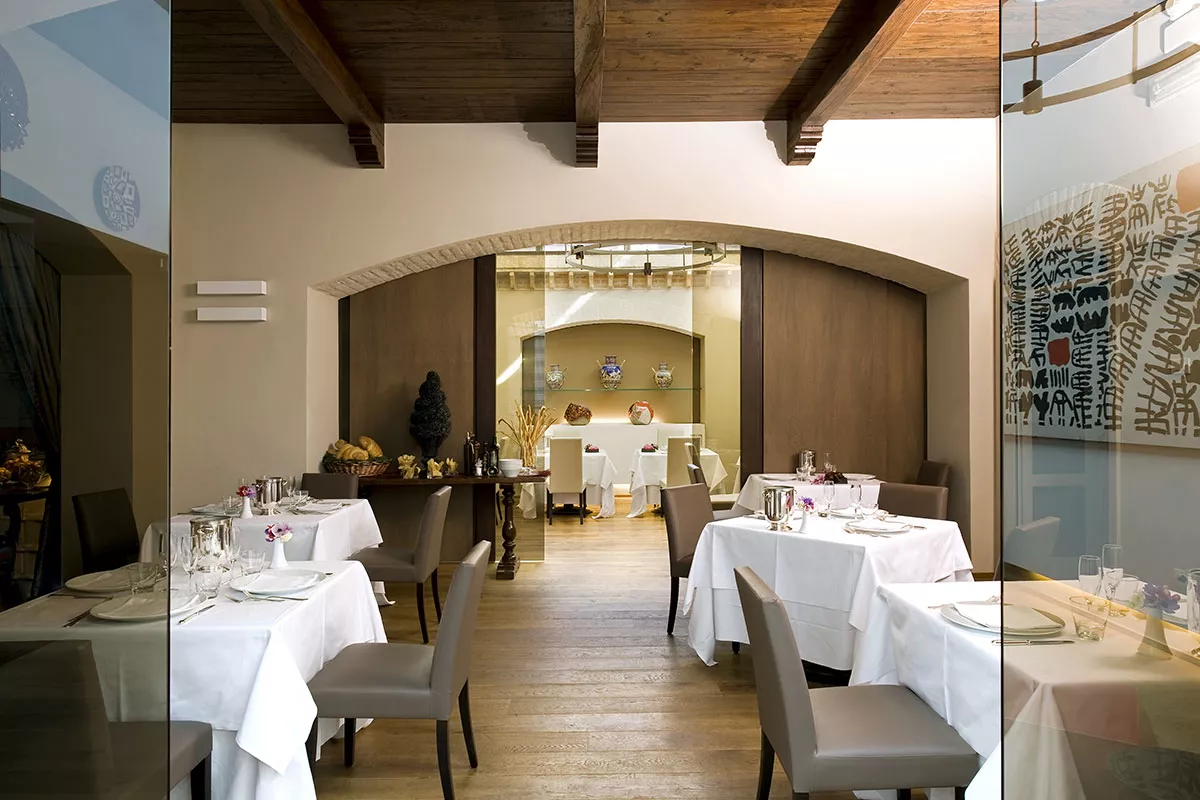Right in the heart of Italy, where the unending green of rolling hills meets the deep blue of the sky, where untouched woodlands are a backdrop to ancient medieval towns, lies a breathtakingly beautiful sight to behold. Hotel Ai Cappuccini is a beauty that is at once marvelous and simple, Franciscan, that raises the senses of both body and mind while speaking to the soul. Everything appears a continuous crescendo of captivating sights and experiences which seem to beg of its visitors to follow the urgings of the American writer Elizabeth Gilbert: Eat, Pray, Love.
Just a few hundred meters from the medieval town of Gubbio, a town where tiny boutique shops still offer tourists and locals the possibility of buying handmade creations in leather, iron, ceramic, and clay, lies the Park Hotel Ai Cappuccini set amongst the greenery of an extensive park and immersed in a calming repose.
Hotel Ai Cappuccini: Relaxation & History
The hotel is located in what was originally a church built in 1631 and dedicated to Saint Nicola of Bari. Over time, the church was passed on to the Franciscan monks and expanded to become a much larger monastical complex. As the years passed, the monastery was eventually abandoned, rebuilt and then abandoned again.
Finally, it was rediscovered by the architects Monaco and Luccichenti who saw in its ancient walls a chance for a renewed future as a place for those looking to regain both physical well-being and peace of mind – a place where visitors could free themselves of their daily cares and open their hearts to a renewed energy, much like the renewed energy they wanted to bring to these ancient walls.
Surrounded by gardens and olive groves with the fragrance of the herbs which continue to grow in the typical Franciscan gardens, Park Hotel Ai Cappuccini is the perfect combination of old-world ambiance and modern-day comforts.
Some of the guest rooms are located in what was once the monastery and face out onto the cloister. These rooms are decorated with handcrafted, wooden furnishings and simple, classic linens in line with the timeless monastical simplicity of style. Other guest rooms are found in the new addition to the building and are bathed in warm colors and refined with marble floors and accents giving them a contemporary elegance.
Today the walls of the monastery are adorned with 15th-century frescoes, tapestries from the Renaissance, Flemish tapis, and modern works of art by contemporary artists such as Arnaldo Pomodoro, Edgardo Abbozzo and Giuseppe Capograssi. The interplay of these striking pieces of art with the architecture creates an ambiance that is stylistically refined and balanced.
Few countries in the world can rival Italy for its immense artistic treasures and longstanding history as the heart and soul of artistic expression, and therefore it’s not surprising that here art, in all of its forms, has long been viewed as a way of elevating the human spirit. This belief is evident in every corner of the building and is joined with the knowledge that water is essential for awakening both body and mind.
Well-Being First
An entire wellness area, Acque Emozionale designed by the architect Simone Micheli, recalls the primordial relationship between man and water. A touch of childlike fun and imagination mixes with sophisticated lines and relaxing blues as guests look up to see a large yellow sphere that appears like a giant beach ball suspended in midair above the pool.
A more reserved and intimate setting can be found in the jacuzzi room, where muscle tension melts away in warm waters fortified with magnesium and potassium, two minerals considered to be beneficial not only to tired muscles but for delicate skin types as well. Another area assures deep, comforting relaxation in the thalassotherapy hot tubs. In between relaxing moments in the pools guests can sip on spirits and warm tisanes from Monasticum, the convent’s pharmacy, which prepares its drinks using the ancient recipes of the Franciscan herbal remedies.
Guests at the Park Hotel Ai Cappuccini can also take the opportunity to detoxify and get back in shape following an individual tailor-made program put together by Marc Mességué. Mességué leads guests through individual plans using healthy foods, herbs, medicines, physical therapy, and body treatments all aimed at helping them rediscover the correct balance between mind and body while learning the philosophy of wellness.
At the hotel’s à la carte restaurant, Ristorante Nicolao, Executive Chef and owner Ivano Monni lavishes guests with exquisite attention and delectable food. The restaurant, recipient of four Michelin forks, prides itself on selecting the best and freshest ingredients daily, and creating dishes to satisfy even the most discerning palates with traditional local recipes such as Strangozzi ai Tartufo Nero di Gubbio (a recipe originating in Gubbio with pasta and black truffle) and other dishes with international flair and flavors.
Ristorante Nicolao is a refined and sophisticated space under a wood-beamed ceiling. Diners are treated to homemade pasta, local meats from the Val di Chiana, and Scheggia cheeses which come elegantly served on silver plates and Rosenthal china. There is a vast wine offering with over 300 labels from Umbria and the world. Curiously, each bottle is carefully kept and cared for in the hotel’s wine cellar built in what was originally the Franciscans’ water cistern.
After just a couple of days at this once-ancient retreat, guests come away with a sense of harmony and balance. A walk along the Franciscan peace trail, the roads which Saint Francis himself walked when traveling from his hometown of Assisi to Gubbio, also offers guests time to meditate and soak up nature’s beauty.
Others can elect to climb the hills of Beato Ubaldo – depicted by Dante in the Divine Comedy -to reach the top and the basilica dedicated to the town’s patron saint. From there the breathtaking views of the valleys and Gubbio leave hikers with images to last a lifetime and a chance to connect with the beauty only nature can hold.
There, amidst the vast quiet beauty of nature, amidst the art, therapeutic waters, and elegant furnishings, amidst the exquisite flavors and scented gardens lies the treasure of inner peace and harmony hidden yet tangible amongst the green hills of Italy’s Umbria.
